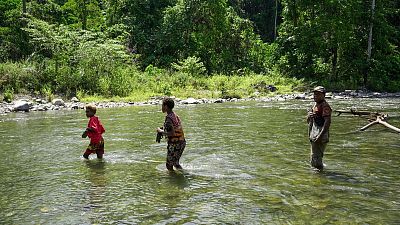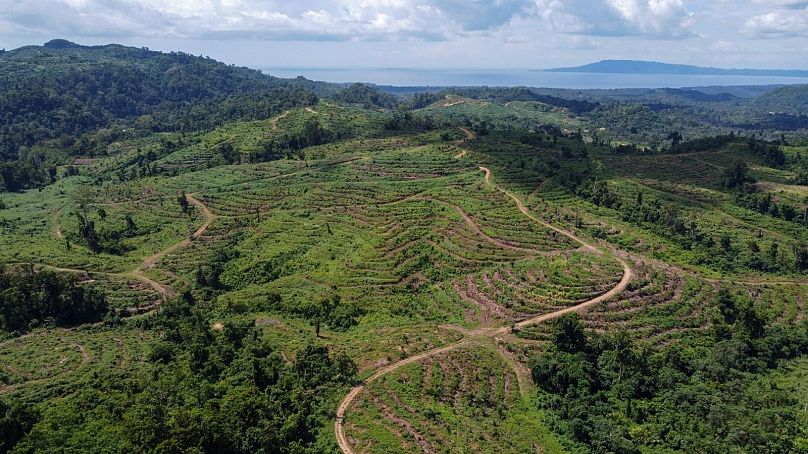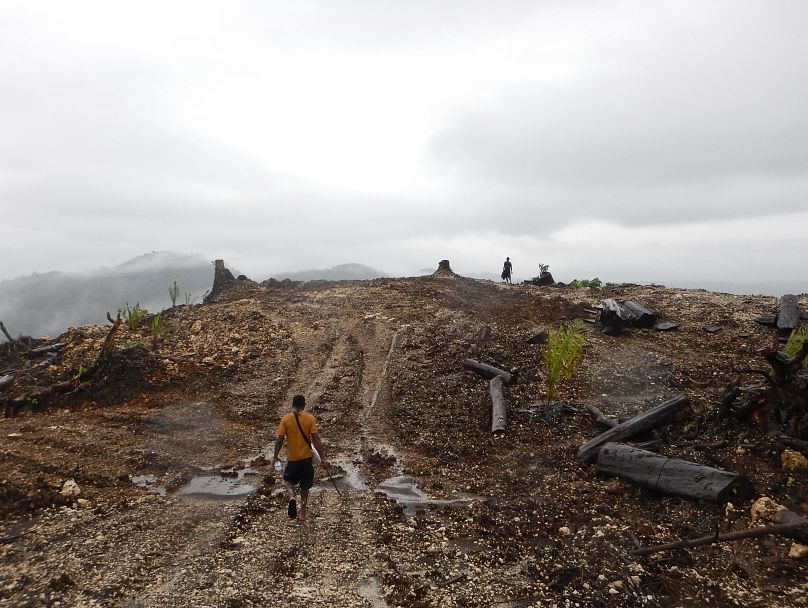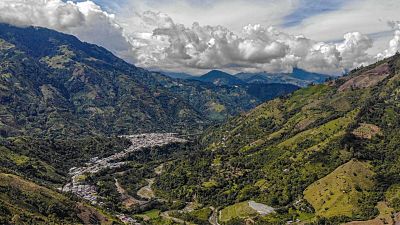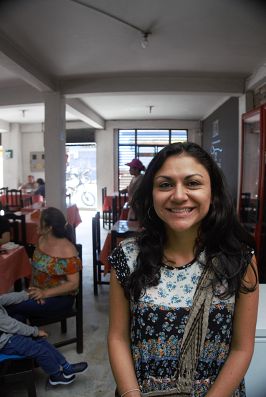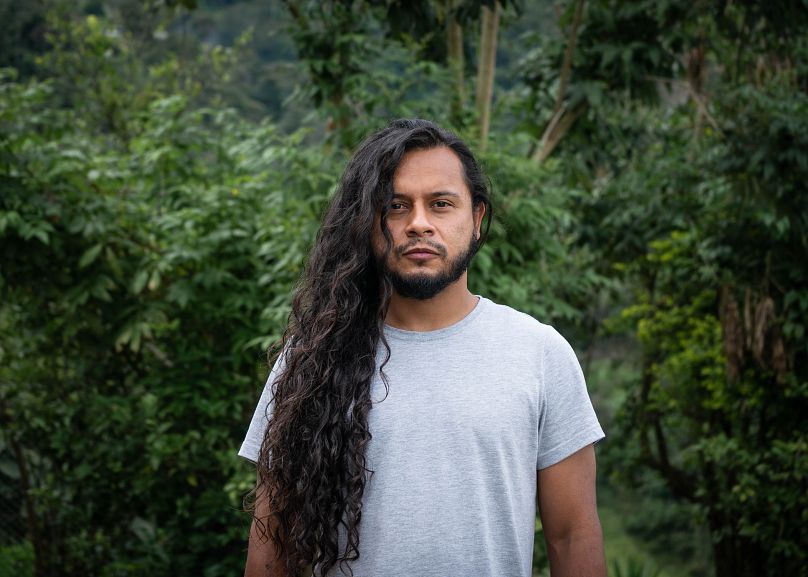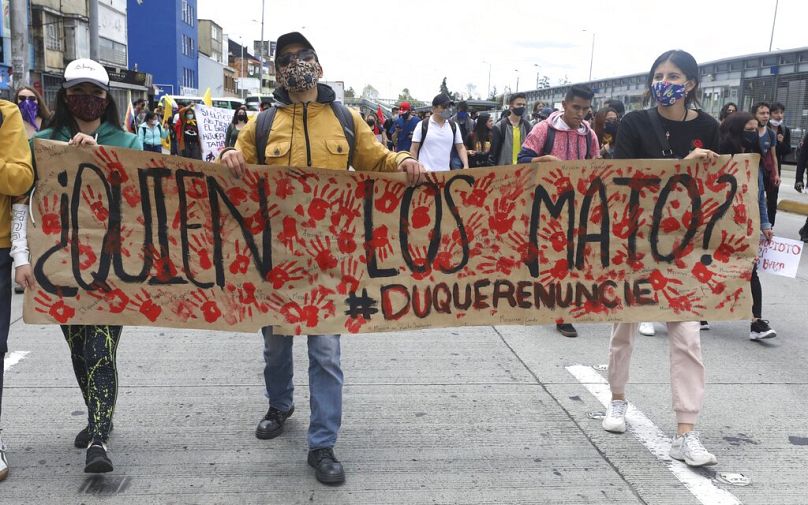Science, Scientists, And Scientism
Monday, 6 December 2021
Science, in the not-so-recent-past, has often had a bad press. It's been personified, particularly by the political left, as Frankenstein, as agents of capitalism, classical liberalism, colonialism, sexism (yang over yin), eugenics, and god-like pretension. More recently though, in the zeitgeists of climate change awareness and covid, it's had an unusually good press; although we retain this persistent worry that viruses such as SARS-Cov2 may be the unwitting or witting result of the work of careless or evil scientists.
Science is simply a method of acquiring knowledge; a method that complements other methods, such as direct observation, thematic storytelling (literature, humanities), and abstraction (eg mathematics, accounting and law). And applied science is the process of creating technologies and other interventions which make use of scientific knowledge. Almost no knowledge is absolute; knowledge, whether derived from science or otherwise, is contestable. The only kind of absolute knowledge is that of tautology, with the most important tautologies being those that make up the discipline of mathematics.
The mantra we hear much of these days is: 'the science tells us …'. Actually, the science doesn’t tell us anything; rather scientists tell us things, and scientists are people with the same human foibles as other people. This idea of science (and therefore scientists) being the 'arbiters of facts' is what I call 'scientism'. It is no different to the old medieval idea of popes, and archbishops, and ayatollahs as being the possessors of facts; the arbiters of truth. It seeds the idea of uncontested – indeed incontestable – truth. It is the idea that 'facts' represent truth, and that there cannot be 'alternative facts'; it is the idea that if some statement (ie 'claim') conflicts with what the authorised science says, then that claim must be false.
This philosophy of science as absolute truth – 'the facts' – is practiced and supported by 'scientistes' (as I call them). Scientism is the religion of science; the 'faith' of science. Many people we call 'scientists' may also aptly be called 'scientistes'; they practice their science as a faith as well as their approved method.
Scientific knowledge actually consists of 'explanatory hypotheses' which are 'undisproven'. (This statement is an 'abstract truth' or tautology; it represents a 'definition' of science.) Thus science is a deductive method, where potential truths derive from theory, and are subject to testing. Scientific hypotheses may or may not be currently contested – in full or in part. But, to be scientific, the must be capable of being contested; and a resolution to such a contest should be conceptually possible, using the method of direct observation. The resolution need not be the discarding of one hypothesis in favour of another; it may be a synthesis of the contesting hypotheses. (Is 'light' made up of waves or particles? It turns out that the best current answer is 'both'.) We use scientific knowledge – undisproven hypotheses – to make predictions; 'making predictions' may be to test hypotheses, or we may perform actions – or implement policies – on the basis that this knowledge is most likely true.
We might note that the concept of evolution in science is a tautology; it essentially says 'what survives best survives best'. The disputes that involve evolution are around the initial origins of 'things' (such as the origins of life, or of matter); or around the mechanisms of evolutionary change, including whether those mechanisms involve intervention. (Charles Darwin prefaced 'The Origins of the Species' with a discussion about domestication, in which humans were the external agents for the evolution of domesticated species.)
A most useful metaphor for science is the 'table'. Explanatory hypotheses that may be true – that are undisproven – sit on this table of potential knowledge. Scientific tension exists when there are two or more hypotheses on the table, both (or all) purporting to explain the same observations. A scientist welcomes alternative hypotheses, because science is all about testing and revising current knowledge. Scientistes, on the other hand, do whatever they can to prevent the emergence of alternative facts. Scientistes are invested in one set of facts, and – in line with human nature generally – are not happy to 'write off' past investment. Leading scientistes distil their wisdom into texts, which become 'the truth'. In medical 'science', the truth for nearly two millenniums was revealed through the second century writings of Galen, arguably the greatest scientiste of all time. Ordinary scientistes, like priests, simply perpetrate or perpetuate the teachings of their antecedent mentors.
For practical convenience, science is divided into sciences, or scientific disciplines. The first division is into 'natural science' vis-à-vis 'social science'; sometimes called 'hard science' versus 'soft science'. The former includes physics, chemistry and biology. The latter includes economics, anthropology and psychology. By definition, these are empirical (subject to testing by observation) rather than cultural. However the practice of many people who are employed as 'scientists' may indeed include a cultural component; a component that reflects a belief system.
Belief systems can be regarded as forms of literary truths; truths which will typically conflict with other belief systems, and which by their very nature cannot be resolved as true or false. There are other kinds of literary truth: in particular those of 'fiction', such as the works of Shakespeare that uphold certain universal themes about human behaviour; and those of 'non-fiction', in particular history texts (historiography) which are highly contestable, and which often convey as much information about the zeitgeists and beliefs of the historians as they do about the times and mores that are being investigated.
Abstract truths may take the form of a tautology – true by definition or (as in algebra) by logical extension. Or they may arise from a belief system: for example, a set of laws such as the 'Ten Commandments' or 'Sharia Law'; or an accounting methodology such as the 'double-entry bookkeeping' as practiced by the medieval Venetians, and attributed in particular to the renaissance texts of Luca Pacioli.
Belief systems can be overlayed, possibly in contradictory ways. It is perfectly possible to believe in both Christianity and primitive capitalism. It is also possible to believe in Christianity and be implacably imposed to primitive capitalism. (To avoid discursion, we may think of primitive capitalism as unevolved or unreimagined capitalism. See my Who's The Thief? for a way out of unevolved capitalism.) While purely religious belief systems are not contestable, systems such as primitive capitalism – based on legal and accounting constructs around 'property' – are contestable but not in a strictly scientific sense. More in an ethical sense.
Who are Scientists?
Babies are scientists! Babies are unencumbered by previous investments, previously formed beliefs, so are free to learn about the world by forming hypotheses, testing them, and rejecting or modifying the hypotheses that don't meet their evidential tests.
· Babies resemble tiny scientists more than you might think, PBS, 2 Apr 2015
· Every Child is a Scientist, Wired, 28 Sep 2011
In an important sense, a scientist is anybody who revises what they believe to be true in the light of changing evidence. Police detectives are – or at least ought to be – scientists; yet, as a group, they have had a reputation for tunnel vision, for pursuing a single line of investigation while downplaying information that questions that investigative line.
Yet we normally think of scientists as people who are employed with a role labelled 'scientist', and as specialist scholars or practitioners within a scientific discipline such as physics or economics. Many people with this moniker are people we do not trust, in large part because of who they are employed by, or who they might hold an allegiance towards.
Any 'scientist' who instinctively acts to keep 'alternative facts' off the 'table of knowledge' is a scientiste rather than a scientist, whatever their formal title might be. They may have been corrupted by their employers' belief systems; or by their own. Indeed their own belief systems might attract them to employers with compatible belief systems. Scientistes are the knowledge gatekeepers of liberal polities.
Another problem with scientific truth is that of 'narrow-vision'. One test of a scientifically-informed policy relating to Covid19 might be that it minimises the number of people who die of Covid19, while neither caring about the number of people who die from (ie, as a result of, directly or indirectly) Covid19, nor being interested in non-fatal consequences of Covid19. The informing scientists may be unbiassed with respect to a belief system, but unintentionally biassed through an overly narrow criterion of the success of an intervention they support.
The scientiste problem is not just about biassed science; it's also about the cheerleaders for scientism, who may include politicians, public servants, and journalists. Cheerleaders, inclined towards popular belief-systems, may express 'confirmation bias' towards certain kinds of scientific 'facts' relative to alternative scientific facts. They may not ask questions that do not align with the favoured narratives.
An interesting article of the bad scientist good scientist genre is 'Reality Check: Vax Vexation' by Stephen Davis (NZ Listener, 4 Dec 2021, p.12) which focuses on the Public Health Policy Journal, which is edited and published by 'discredited' scientists. (I use quote marks as a sign of my neutrality on this matter.) My sense is that much of the 'science' in this journal might be regarded as non-science or nonsense by many scientists; but much science published in other journals also reflects an agenda.
Indeed some bad science is used to push one agenda that I'm supportive of; namely that of concern about anthropogenic climate change, a reality which it is difficult to argue against based on the evidence that I'm aware of. Nevertheless, as an economic historian, I was disappointed by the infamous 'hockey stick' chart, that entirely removes the Little Ice Age which peaked in the seventeenth century, and has been widely argued to be an instrumental factor in the transition from feudalism to capitalism, especially in Europe. (A very worthwhile book here is Nature's Mutiny by Philipp Blom, Picador 2019, about "How the Little Ice Age transformed the West and shaped the present". Some people have played down the Little Ice Age by suggesting that it was mainly a northern hemisphere phenomenon; the state of New Zealand's glaciers at the time of James Cook's first voyage – 1769 – would suggest otherwise)
Another example of bad science good science rhetoric was Al Jazeera's The Campaign Against the Climate (17 Apr 2021) where 'bad scientists' upholding naked capitalist agendas with pseudo-scientific falsehoods were pitted against good publicly-spirited agenda-free scientists. If only it were that simple! Actually, the requirement to look after Planet Earth is a difficult-to-contest ethical truth; the climate science is useful, but by no means the only reason to induce better behaviour.
An interesting and accessible recent discussion about science was Steven Pinker's RNZ (27 Nov 2021) interview with Kim Hill: Steven Pinker: why being rational is human and matters now. In a poignant moment at the end of the interview, Pinker acknowledged the important scientific career of the late Emeritus Professor Michael Corballis, who, apparently, "some senior academics say Corballis was the best chance Auckland University has ever had to snare a Nobel Prize". Sadly, for this distinguished world scientist aged 85, half of the references in his Wikipedia page relate to events in the last few months (see the letter Corballis co-authored, In Defence of Science, which referred to Mātauranga Māori.
(Mātauranga Māori is largely a mix of generalised inference from direct observation [the inductive method], much of which complements and facilitates science, and thematic storytelling which conveys ethical truths and true human foibles. That is not to claim that Māori before colonisation never used the scientific [deductive] method; rather it is to acknowledge that valid knowledge – truth – is much more than explanatory science, and that oral traditions of knowledge cannot easily convey methodology.)
Questions in need of an Improved Knowledge Base
I will mention four.
First on human origins, very little of what I have read properly acknowledges that a very large proportion of humans in the past will have lived, as today, in low-altitude habitats. The anthropalaeontologists don't deny that sea levels are up to 100 metres higher today than they were between 90,000 and 10,000 years ago; but they continue to favour inductive reasoning based on available evidence (very little of which was from low-altitude habitats for the essential reason that those habitats are now under water), while showing little interest in more speculative theory-informed possibilities about the coastal lives of early humans.
Second, when it comes to epidemiology, there still seems to be a scientific bias in favour of explanations for epidemics based on the unique characteristics of micro-pathogens rather than in favour of explanations that focus on the different vulnerabilities of host populations to the likes of viruses and bacteria. Thus, I have yet to see any stories trying to explain why, in 2020 before new Covid19 variants emerged, Eastern Europe suffered much worse than Western Europe in late 2020 despite the west suffering much more initially; and I have seen few attempts to explain why South America was so vulnerable.
Third, there are many matters in economics that could be better understood by better practice in economic science. The one I will mention here is about the causes of inflation; and the alleged role of low interest rates in causing inflation, and of the widespread conviction that intervening in the market to raise interest costs will somehow make inflation go away. The commonsense approach is to see inflation as analogous to physiological pain, knowing that pain can have many possible causes. The 'one remedy' answer for inflation is no more scientific than was Galen's famous blood-letting remedy for many types of medical ailment. Further, we only have to look at the relationship between interest rates and inflation in New Zealand (and elsewhere) in the years before the 2008 global financial crisis; then, higher interest rates were raising both general inflation and especially house price inflation.
Finally, an accounting matter. How can we know how much income-tax is paid by any New Zealander, and by all New Zealanders? It's a question with no scientific answer, because it depends on the legal and accounting systems adopted. And these systems, as noted, are derived culturally, not scientifically.
Philosophers of Science
I will finish this essay by noting three classic works on the philosophy of Science; all works I learned about in my higher education.
The first work remains the seminal text on the scientific method, and was published in Nazi Germany in 1934, and translated into English in 1959. It is of course Karl Popper's The Logic of Scientific Discovery. We should note that Popper (born in Austria) was not a Nazi; he indeed also wrote a classic discourse on political liberalism – The Open Society and Its Enemies – while living as a political refugee in Christchurch, New Zealand. Popper will have been well aware of the Methodenstreit – the Battle of Methods – in economics in the 1880s, in which the deductive method promoted by the 'Austrian school' of economists was pitted against the inductive method favoured by the German 'historical school'.
The second classic work on science was Thomas Kuhn's The Structure of Scientific Revolutions (1962), which introduced the notion of 'paradigm-shift'. Thus the reality is that most professional scientists work within paradigms all their careers, and that there is an innate conservatism within such scientific work. Scientists tend not to ask questions that might lead to uncomfortable answers; they build safer careers working within already well-researched territory.
Finally, Imre Lakatos introduced the idea of 'Research Programmes' which had a hard core, and a soft periphery. The hard core really represented a 'scientific dogma' (yes, it's an oxymoron), a quasi-scientific belief system (doctrine) which was protected from the usual scientific methods of falsification. The Research Programme could, however, evolve in relatively incremental ways, through allowing changes to its soft outer veneer.
I have little doubt that Michael Corballis was familiar with the works of these three philosophers of knowledge. Of course, their works and his are subject to the principle of scientific contestability – subject to revision through argument and through counter-example – as are any works in the field of knowledge.
One of the 'pseudo-sciences' that Lakatos identified was 'neoclassical economics', which, at its core and as is practiced by its practitioners, is very much a doctrine – the doctrine of economic liberalism – rather than a science. Yet economics comes up with many useful hypotheses which are often tested, though not always rejected or modified when the scientific method suggests they should be. Take my example about inflation.
Indeed economics, which models itself on physics, contains truths that are more analogous to pure mathematical truths; truths that might be called advanced tautologies. An important such truth forms the basis for cost-benefit analysis: it says that if the benefit of doing more of something outweighs its 'marginal' cost, then more should be done. Otherwise more should not be done, and possibly too much of that something has already been done.
Coming back to the biggest scientific issue of 2020 and 2021, this core economic truth can help answer the question as to how long a nation facing a pandemic emergency should continue to stay in protective quarantine, or for how long people should continue to wear facemasks in confined public spaces. By definition, an emergency public health mandate has clear short-term benefits that outweigh its short-term costs. But, when it comes to the question of extending such an authority-led measure, calculations of diminishing benefits and increasing costs come into play.
Conclusion
There is much more to knowledge than science. Nevertheless, the scientific method has proved to be a major contributor to modern knowledge, both through the wonderful and otherwise unknowable insights into nature that it brings, and to the technologies and other human interventions which contestable knowledge makes possible. Science should neither be denounced nor deified. Scientism is not science. Scientific knowledge is contestable, by definition, and is tested and modified through observation and measurement.
-------------
Keith Rankin (keith at rankin dot nz), trained as an economic historian, is a retired lecturer in Economics and Statistics. He lives in Auckland, New Zealand.
© Scoop Media

Political Economist, Scoop Columnist
Keith Rankin taught economics at Unitec in Mt Albert since 1999. An economic historian by training, his research has included an analysis of labour supply in the Great Depression of the 1930s, and has included estimates of New Zealand's GNP going back to the 1850s.
Keith believes that many of the economic issues that beguile us cannot be understood by relying on the orthodox interpretations of our social science disciplines. Keith favours a critical approach that emphasises new perspectives rather than simply opposing those practices and policies that we don't like.
Keith retired in 2020 and lives with his family
